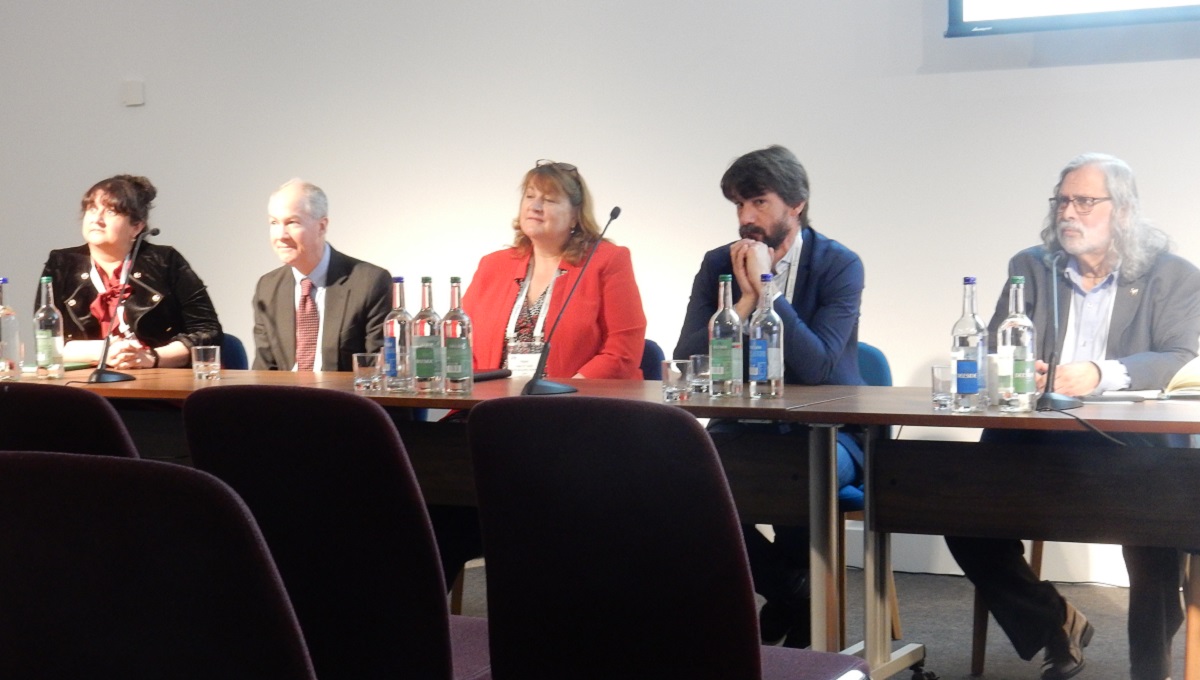ABERDEEN, SCOTLAND – Regulatory agencies have to find a balance between being faster at communicating during a crisis and getting the message right, according to the acting director of the Office of Food Policy and Response at the U.S. Food and Drug Administration.
Donald Prater told attendees at the International Association for Food Protection (IAFP) European Symposium in Aberdeen that in a crisis, communication has to be timely. Prater was part of a panel debate on the evolving role of food scientists and response to food safety crises.
“From a regulatory standpoint, that is something we are not always good at, we wait until we hit a threshold when there is enough information to communicate. We have to be timely, sometimes with short messages. It is also important to monitor the impact. Did the message get through? What did they do with the message? Did they change behavior in the way we expected?” he said.
“People may change behavior in ways that harm public health. In a crisis, sometimes there is a vacuum of information but that will be filled with something. Sometimes we are slow to communicate, to make sure we get it right and understand the impact. In that time period, the gap can be filled and if it is filled with information that contains harm, people can harm themselves or those around them.”
Connecting with the public
Traditionally, scientists’ roles have been in risk assessment or risk management but risk communication is an area that needs more attention, said Prater.
“It is more than just the hazard, we have to communicate about the exposure on a platform that the consumer is on, there is always an opportunity to do better. We need to listen to what are the things people are concerned about, then communicate on risk based on the evidence,” he said.
“Horizon scanning is important, there are new hazards and old hazards in new places because there is a lot of innovation. Things not traditionally used in food are now in the food supply. The role of food scientists is evolving, how we craft messages, listen and think about human behavior will be important.”
The panel also included Purnendu Vasavada, from the University of Wisconsin-River Falls, and Francois Bourdichon, of the Università Cattolica Del Sacro Cuore in Italy.
In recent years, consumers have been increasingly faced with the spread of myths and conspiracies dealing with food safety, especially on social media. Misinformation can spread quickly online leading to confusion, damage to public health and distrust in science, government agencies and businesses. False or distorted information can lead to a small food safety issue becoming a major media crisis or common concerns not receiving enough attention.
Role of risk communication
During the presentation, Michelle Patel, from the Food Standards Agency (FSA), said trust can fall apart in a crisis.
“The skills you need in the age of misinformation are different than the usual skills for risk assessors and risk managers. We need to value the skills of the risk communicator and be comfortable admitting uncertainty. We have to try to explain in simple terms what is going on and understand other points of view, even if we don’t agree. It is important to be proactive, tell people you are on it, you don’t have all the answers yet but are looking at it,” she said.
Responding to food safety crises involves elements of risk communication and risk management. Scientists and food safety professionals can play an important role in communicating science-based information and help stop the spread of myths and misinformation, said panelists.
Helen Taylor, technical director at the ZERO2FIVE Food Industry Centre, said small and medium enterprises can lack qualified and knowledgeable individuals and there is a shortage of food scientists in the system.
“We have taken information from regulators and made it real and relevant. Young people today have access to instant information and education. We work with them as one size doesn’t fit all,” she said.
“Understanding what the challenges are for graduates in businesses can help them with their knowledge. If you have the right people in a business it can have a ripple effect of knowledge. In the UK, home economics is not in the curriculum and over the years there has been reduced interest in food science. Where is the next generation of food science professionals going to come from?
“We teach crisis management with our students and run it as if it was an actual product recall. It is a safe place to get exposure to something they may have to face when going into industry. This is observed and feedback provided to students.”
(To sign up for a free subscription to Food Safety News, click here.)

